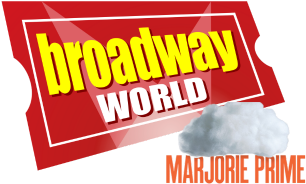John Fraser Releases First eBook, 'Nihilism, Modernism, and Value'
Nihilism-a dread word. Basically signifying that with the loss of supernatural underpinnings, there are no grounded values, no ways of determining what is really real, and no goals. A 19th-century genie that can't be corked back in the bottle. A reef always there, below the surface.
What matters is how this prospect is viewed-angrily ("Lies, lies, all lies. Blasphemy!"), depressively ("Why strive, since nothing really matters?"), jubilantly ("It's all about power and selfishness and I'm a winner"), frustratedly ("Well, if you have your position and I have mine, who's to decide which is better?") These are not abstract philosophical concerns.
In 'Nihilism, Modernism, and Value,' Fraser explores the matrix out of which feelings of value and worthlessness evolve, as displayed in a broad variety of 19th and early 20th-century writings, with frequent references to realworld experiences, such as the aftermath of flu.
He reverses the process by which "mere" individual experiences are reduced to supposedly more real abstractions. The numerous quotations from primary texts are not appendages to his argument, they are part of the process of discovery, which is why the book feels much fuller than its modest length.
There are individuals in it, fictional and realworld, for whom values have imploded (Mrs. Moore's "Everything exists, nothing has value" in 'A Passage to India'). But mainly there is a heartening variety of modern writers, among them Forster, Conrad, Woolf, Lawrence, Kafka, Borges, and William James, who know the Void, but for whom the rich variousness of organic reality and individual selves in quest of plenitude are their own justification. Modernism here is not disintegrative.
In terms of this book, the bleak, the cynical, the destructively ironical, the noir, are not more real and true than more positive takes on the nature of things, in which they are nevertheless elements. And to say that individuals see things from their own perspectives doesn't mean they all to see them completely differently. There can be overlappings and sharing.
The titles of the lectures give an idea of the progression in the book: "Substantiality," "Cold White Peaks and Snug Foothills," and "Being There Together." The cold white peaks are those of a claimed intellectual superiority of "pure" abstraction over the untidy warmth of common experience.
Fraser conducts the reader lucidly through a fascinating sequence of interwoven topics (philosophical, psychological, sociological, aesthetic) that starts with Woody Allen and a good steak and ends with the great dinner party in 'To the Lighthouse.'
Published in ebook format by eBookIt.com, 'Nihilism, Modernism, and Value' is an original and important work by a significant thinker with a unusually wide range of interests.
About John Fraser
Fraser, born in North London in 1928, grew up with the WWII gulf between wartime inhumanity and the promises of a brave new peacetime world. Values and their bases in human nature have been of lively concern to him ever since.
A grammar-school boy, he has degrees from Oxford (Balliol) and the University of Minnesota, where his minor in Philosophy included classes from Wilfred Sellars and Alan Donagan. His three print books were published by Cambridge University Press. Among the journals in which his articles appeared are the Partisan Review, the Southern Review, the Yale Review, and Art International. In 1990 he gave the prestigious Alexander Lectures at the University of Toronto.
Since his retirement after thirty years at Dalhousie University, he has developed, with Rob Stevenson as webmaster, a large website containing the equivalent of several more books, among them the major revisionist anthology 'A New Book of Verse.'
(http://www.jottings.ca/john/voices/newbk_contents.html)
'Nihilism, Modernism, and Value' is his first eBook. Others are on the way.
A reviewer of Fraser's 'Violence in the Arts' (1974) found in it "an extremely agile and incessantly active mind that illuminates almost every subject that it touches." A senior reviewer of his magnum opus, 'America and the Patterns of Chivalry' (1982), said, "There are not many learned books which have the unputdownable quality of a thriller; this is one of them."
Fraser was married to the artist Carol Hoorn Fraser (1930-1991), who figures in his website. He lives in Halifax, Nova Scotia.
About eBookIt.com
Since 2010, eBookIt.com (based in Sudbury, Massachusetts) has helped thousands of authors and publishers get their books converted to ebook format, and distributed to all the major ebook retailers, including Amazon.com, Barnesandnoble.com, Apple iBookstore, Kobo, Sony Readerstore, Ingram Digital, and Google eBookstore.
Videos
